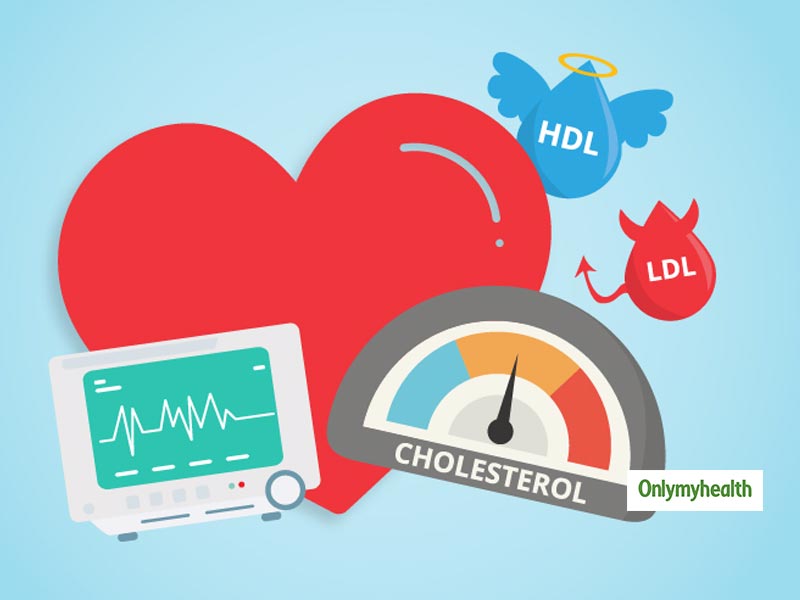
On hearing the name of cholesterol, it comes to mind that it is harmful to health. This is why you may be surprised to know that cholesterol is not entirely harmful. The truth is that your body makes cholesterol itself, which is necessary for the formation of cells, tissues and many important hormones. However, certain factors like a sedentary lifestyle and erratic eating habits can lead to increased cholesterol levels. Cholesterol is a lipid, which are present in your body like we have fat. Your body converts calories into lipids and saves it for later use. There are two types of cholesterol in the body: Low-density lipoprotein (LDL) and high-density lipoprotein (HDL).
Table of Content:-

The current situation is such that most people suffer from cholesterol issues irrespective of age. Earlier, this was mostly a cause of trouble for older adults above the age of 40. However, with time, this health concern has become common among younger adults too. In these pandemic times, one should not take such fundamental health concerns lightly but ask a doctor about the basics of such common health concerns like cholesterol. Cholesterol screening is important in today's time.
Listed below are six essential questions to ask about cholesterol for better understanding and prevention of the health concern:
1. Why should I be concerned about cholesterol?
There are several risk factors for getting coronary heart disease, and high cholesterol is one of the important causes of increasing one’s risk of having a heart attack or stroke. Several large trials over the past 40-50 years have shown a positive relationship between high cholesterol and the risk of having cardiovascular disease.
Also Read: Add These 5 Foods To Your Diet To Increase The Levels of HDL or Good Cholesterol
2. What’s is “good” and “bad” cholesterol, the difference between them?
As the name suggests, good cholesterol (HDL cholesterol) is helpful cholesterol and protects one from having a heart attack. So one should try and raise one’s HDL cholesterol. On the other hand, bad cholesterol (LDL cholesterol) is responsible for a build-up of plaques on the walls of the heart arteries leading to their narrowing, and hence LDL cholesterol should be lowered.
3. How much cholesterol is too much?
While total cholesterol above 250 is high for an average individual with no heart disease or risk factors for heart disease, the cut-off levels are lower for someone with the presence of cardiovascular risk factors like hypertension, diabetes, smoking, etc and still lower as low as 120 for individuals with established coronary heart disease.
4. Can lowering cholesterol reduce heart risk?
Yes. Several studies have shown that reducing one’s cholesterol levels, either by lifestyle changes or by taking cholesterol-lowering drugs does lower the risk of having a heart attack.
5. What makes my cholesterol levels go up?
In some individuals, it may be hereditary. It has been shown that high cholesterol levels sometimes tend to run in families suggesting a genetic predisposition. In others, it is a lifestyle issue. Sedentary lifestyle, obesity or overweight, lack of physical activity and ingestion of a high fat or cholesterol diet. All of these can increase one’s cholesterol levels.
Also Read: 5 Mistakes That Could Lead To Increased Cholesterol Levels
6. What can I do to lower my cholesterol?
First and foremost is lifestyle changes --- regular physical activity or exercise, weight reduction, having a low-fat diet. Then, there are cholesterol-lowering medications, statins being an essential class of medicines which not only reduce cholesterol but also reduce the risk of having a heart attack.

(With inputs from Tilak Suvarna, Senior Interventional Cardiologist, Asian Heart Institute, Mumbai)
Read more articles on Other Diseases
Also watch this video
How we keep this article up to date:
We work with experts and keep a close eye on the latest in health and wellness. Whenever there is a new research or helpful information, we update our articles with accurate and useful advice.
Current Version